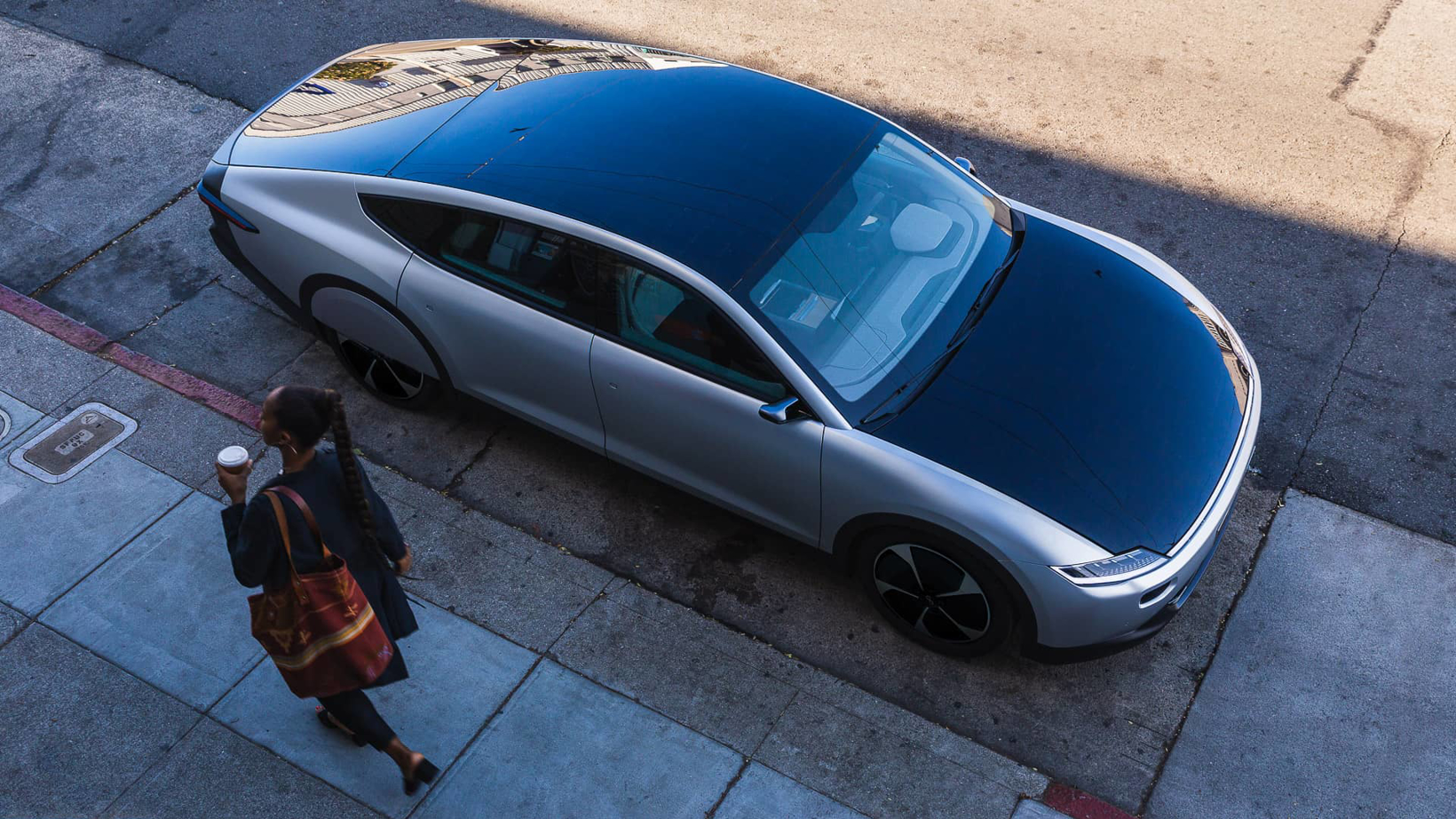Exploring the Impacts of Solar-Powered Cars on Urban Mobility
The emergence of solar-powered cars has revolutionized urban mobility in many ways. Solar-powered cars are an innovative form of transportation that harnesses the power of the sun to provide clean, efficient, and cost-effective transportation. This technology has the potential to reduce dependence on fossil fuels, reduce air pollution, and improve urban mobility.
The primary benefit of solar-powered cars is their environmental sustainability. Solar-powered cars produce no emissions, making them a clean, renewable form of transportation. This reduces the amount of air pollution in cities, which has numerous health benefits. In addition, solar-powered cars are powered by renewable energy, so they do not require the consumption of finite fossil fuels. This can help reduce the burden on the environment and promote a more sustainable lifestyle.
Solar-powered cars also offer improved urban mobility. These vehicles are highly efficient, so they can travel farther on a single charge. This allows for longer commutes with fewer stops to recharge. Additionally, solar-powered cars are often smaller and lighter than gasoline-powered vehicles, making them more maneuverable in urban settings. This improved maneuverability further enhances urban mobility.
Finally, solar-powered cars offer cost savings. Solar-powered cars are powered by free energy from the sun, so they do not require costly gasoline or electricity. This means that they use fewer resources and are cheaper to operate than traditional gasoline-powered vehicles. This can be beneficial to those living in cities, as it can reduce the overall cost of transportation.
In conclusion, solar-powered cars offer many benefits to urban mobility. They are environmentally sustainable, efficient, and cost-effective. As such, they offer an attractive alternative to traditional gasoline-powered vehicles and can help improve urban mobility.
What the Future Holds: A Look at How Solar-Powered Cars Could Change Transportation
The potential of solar-powered cars to revolutionize the transportation sector is an exciting prospect. As the world continues to grapple with the increasing cost and limited availability of traditional fuels, solar-powered cars offer an environmentally friendly and sustainable alternative. This article will explore the potential of solar-powered cars to change the way we travel and discuss the advantages and challenges associated with such a shift.
One of the most obvious benefits of solar-powered cars is their ability to reduce or eliminate dependence on costly and polluting fossil fuels. Solar-powered cars are able to draw energy directly from the sun, meaning that they can run without using any fuel at all. This could lead to substantial cost savings for drivers and a significantly reduced environmental impact. Additionally, solar-powered cars could be used to store excess energy from renewable sources such as wind or solar power, meaning that they could help to balance out the energy grid.
However, there are still some challenges associated with the use of solar-powered cars. For example, they require a large initial investment in order to purchase the necessary components and technology. Additionally, the range of solar-powered cars is limited by the amount of energy that they are able to store, meaning that they are not suitable for long-distance journeys. Finally, solar-powered cars are affected by weather, meaning that their performance can be unpredictable in cloudy or overcast conditions.
Despite these potential drawbacks, the development and use of solar-powered cars could bring about significant changes in the way that we travel. With further investment and research, these vehicles could become more efficient and cost-effective, leading to wider adoption and use. Ultimately, solar-powered cars could revolutionize the transportation sector and help us to move towards a more sustainable and eco-friendly future.
Evaluating the Cost Benefits of Solar-Powered Cars
The increasing awareness of environmental issues has sparked a surge in the development of solar-powered cars. Despite the fact that solar cars are far less common than their gasoline-powered counterparts, they are becoming increasingly attractive to the public due to their potential cost savings and environmental benefits. In this article, we will evaluate the cost benefits of solar-powered cars.
The most obvious cost benefit of solar-powered cars is the fact that they are powered by the sun, meaning they do not require any gasoline or other fuel sources. This eliminates the ongoing cost of fuel and reduces the amount of money spent on car maintenance, since the engine does not need to be serviced or refilled with fuel. Additionally, solar cars require less energy to power than gasoline-powered cars, meaning they can be driven farther on a single charge.
Along with the cost savings associated with eliminating the need for fuel, solar cars also save money in terms of their purchase price. Solar cars are generally more expensive than gasoline-powered cars, but the long-term savings can be significant. Since solar cars do not require any fuel costs, the purchase price is the only expense associated with owning a solar car.
Solar cars can also be eligible for tax credits and other incentives, which can significantly reduce the cost of ownership. In addition, the cost of solar panels and other components used to power solar cars has been steadily declining, making them more affordable for the average consumer.
Finally, owning a solar-powered car can have a positive impact on the environment. Solar cars produce no emissions, meaning they do not contribute to air pollution or global warming. Additionally, solar-powered cars help reduce dependence on fossil fuels, which are a finite resource.
In conclusion, solar-powered cars offer a number of cost benefits and environmental benefits that make them an attractive option for consumers. The cost savings associated with eliminating fuel costs, the potential for tax credits and other incentives, and the environmental benefits make solar-powered cars a smart choice for those looking to reduce their carbon footprint.
The Potential Challenges of Implementing Solar-Powered Cars
The potential of solar-powered cars to revolutionize the automotive industry is undeniable. However, their implementation is not without challenges. This article seeks to outline some of the most common challenges associated with the development and implementation of solar-powered cars.
The first challenge is cost. Solar-powered cars require expensive materials and components, making them more expensive than traditional fuel-powered cars. This cost can be prohibitive for many consumers, making it difficult to create a market for solar-powered cars. Additionally, the cost of installing a solar panel system on a car is also very high, further adding to the prohibitive cost of solar-powered cars.
The second challenge is efficiency. Solar-powered cars are still relatively inefficient compared to traditional fuel-powered cars. This means they require more energy to cover the same distance, making them less attractive to consumers. Additionally, solar-powered cars are also sensitive to weather conditions, which can further reduce their efficiency.
The third challenge is infrastructure. Solar-powered cars require dedicated infrastructure to charge their batteries, which is not yet widely available. This means that while solar-powered cars could potentially revolutionize the automotive industry, they are still not practical for many consumers due to a lack of available charging stations.
Finally, solar-powered cars are also vulnerable to theft and vandalism. Due to their high value and relatively low security, solar-powered cars are more susceptible to theft and vandalism than traditional fuel-powered cars. This can be a major deterrent for consumers considering the purchase of a solar-powered car.
In conclusion, although solar-powered cars could potentially revolutionize the automotive industry, there are still several challenges associated with their implementation. These include cost, efficiency, infrastructure, and vulnerability to theft and vandalism. Nonetheless, with further research and development, these challenges can be overcome and solar-powered cars can become a reality.
Exploring the Environmental Benefits of Solar-Powered Cars
Solar-powered cars offer a powerful way to reduce the environmental impact of driving. By taking advantage of the renewable energy produced by the sun, solar-powered cars can reduce or eliminate the need for traditional fuels, such as gasoline or diesel, that are responsible for air pollution and climate change. This article will explore the potential environmental benefits of solar-powered cars.
The most obvious environmental benefit of solar-powered cars is that they produce no emissions. Traditional combustion engines release carbon dioxide, nitrogen oxides, and other pollutants into the atmosphere, contributing to air pollution and climate change. By contrast, solar-powered cars do not use fossil fuels and thus do not emit these pollutants. This makes them a much cleaner and more efficient way to travel than traditional vehicles.
In addition to eliminating emissions, solar-powered cars are also more efficient than traditional vehicles. Solar-powered cars use solar energy to directly power the car, rather than relying on the combustion of fuel, which is an inefficient process. This means that solar-powered cars can travel farther on the same amount of energy, making them more efficient than traditional vehicles.
Finally, solar-powered cars are also more sustainable than traditional vehicles. Traditional vehicles rely on finite resources, such as fossil fuels, which are in limited supply and eventually run out. Solar-powered cars, on the other hand, use renewable energy, which is available in abundance and is not depleted by use. This makes them a much more sustainable option for transportation in the long-term.
In conclusion, solar-powered cars offer a number of environmental benefits, including reduced emissions, increased efficiency, and greater sustainability. By taking advantage of the power of the sun, solar-powered cars can help reduce the environmental impact of driving.






